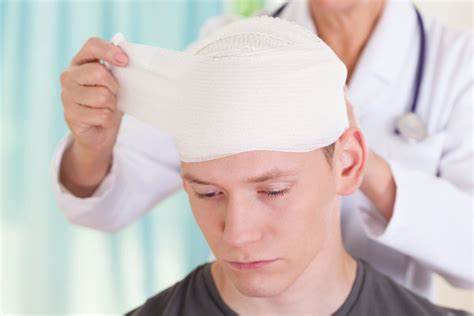A head injury or concussion is a traumatic brain injury that occurs when a person’s head receives a blow or jolt, leading to a change in mental status, brain function, or both. Concussions can range from mild to severe and can have long-lasting effects if not treated promptly and properly. It is important to respond quickly and effectively to a head injury or concussion to reduce the risk of permanent damage.
Step 1: Seek Medical Attention
The first step in responding to a head injury or concussion is to seek medical attention immediately. This is especially important if the person has lost consciousness, has a headache, dizziness, nausea, or is feeling confused. If you suspect that the person has a concussion, take them to the emergency room or call an ambulance.
Step 2: Observe the Person
While waiting for medical help to arrive, observe the person’s behavior and monitor their symptoms. If the person is conscious, ask them questions to assess their level of consciousness and memory. Check their eyes for unequal pupil size or rapid eye movements, as these can be signs of a severe injury.
Step 3: Rest and Limit Stimulation
After receiving medical attention, the person should rest and limit stimulation to allow the brain to recover. This means avoiding activities that could cause another injury, such as sports, physical activity, and anything that requires mental effort. It is also important to limit exposure to loud noises, bright lights, and screens, as these can make symptoms worse.
Step 4: Gradually Increase Activity
Once the person is feeling better, they should gradually increase their activity levels, but avoid anything that could cause another injury. This may include light physical activity, such as walking, and gradually increasing mental effort, such as reading or using a computer. It is important to listen to the body and avoid activities that cause symptoms to worsen.
Step 5: Follow-up Care
After a head injury or concussion, it is important to follow-up with medical care to ensure that the person is recovering properly. This may include regular appointments with a doctor, physical therapist, or other healthcare provider. The person should also report any changes in symptoms, such as headaches, dizziness, or confusion, as these can indicate a more serious injury.
In conclusion, a head injury or concussion is a serious condition that requires prompt and proper treatment. By seeking medical attention, observing the person, limiting stimulation, gradually increasing activity, and following up with care, the person can reduce the risk of permanent damage and recover more quickly. If you or someone you know has experienced a head injury or concussion, seek medical attention immediately and follow these steps to ensure proper recovery.

